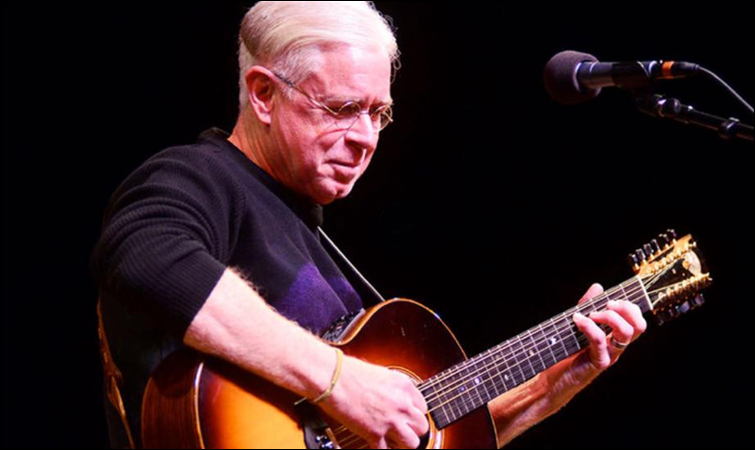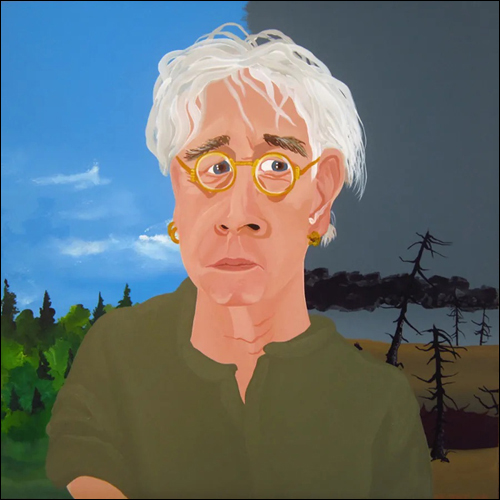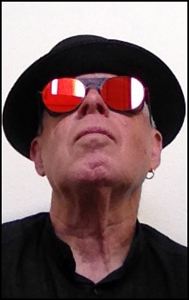Jun 30, 2017 – by Bill King
We lived in what was stamped a “hippie haven” in the early seventies – Gothic Avenue, which borders Quebec Avenue – in High Park, Toronto. The brown rice/alternative lifestyle sanctuary was a haven for writers, musicians – in fact the late Billy Bryans lived only a few steps away and was playing in a band called Horn. Music was big fun and discovery. You could start in the early morning after a hit of a hash/tobacco joint and walk in on neighbours. Music played day and night, in fact it was all about checking out the person next door’s album collection.
The progressives blasted Emerson, Lake and Palmer – the countrified – Pure Prairie League – and the folkies loved their Tea for the Tillerman/Cat Stevens and a newcomer rising on the Canadian scene, Bruce Cockburn.
Even if you didn’t pay much attention you learned who the artists were were through peripheral listening. I had Bruce’s voice memorized as well as his fluent guitar playing. Cockburn stuck with you like he belonged in your life. Right time, right place!
The debut – Bruce Cockburn, produced by Eugene Martynec, came with a single that seemed to follow Canadians everywhere – Going to the Country. I know the inhabitants of Gothic Avenue were served a new side each year we survived the developers wrecking ball – High Winds, White Sky – Sunwheel Dance, Night Vision, Joy Will Find a Way and In the Falling Dark.
Come September, Cockburn is inducted into the Canadian Songwriter’s Hall of Fame (CSHF)and releases his thirty-third recording, Bone to Bone. I connected with Bruce from his San Francisco home and collected his thoughts on a number of issues, episodes and events.
You have a couple of big events in September – induction into the Canadian Songwriter’s Hall of Fame and your 33rd recording – Bone to Bone. Your thoughts?
Any particular order? The exciting thing for me of course is the album – it’s been awhile since I’ve had an album out. I’m happy with the songs and how it came out. I’m anxious to get it out and get people to hear it. The Songwriter’s Hall of Fame thing is nice. There’s a lot of ‘halls of fame’ in the world. In one way, it’s delightful to be recognized by the scene – people who enjoy what I do and people who are close enough to it to appreciate what I do. That means a lot. I can also remember thinking, getting inducted into some kind of hall of fame means you should already be dead or about to be. I don’t feel like that now. It feels pretty good. I also remember being somewhere and there was the towing and removal hall of fame – every industry has one. This is a national one and a big deal – it’s nice and I’m very appreciative.
It’s about songwriting too – something very special.
It’s nice to be recognized by the people who understand what you do.
You have a healthy attitude about your career. It’s spanned decades and there is no reason to retire – just keep making music..
Yes – as long as I can keep doing it, that’s what I want to do. I don’t take it for granted or assume my feelings would ever change – it could, but hasn’t so far. I like what I do and I like performing the songs I write for people. It’s the way they get to hear them best and the way I get to share them in the presence of actual human feedback. As long as I’m physically able to do it, I expect I will.
Do you still enjoy your time on stage?
I’ve always been terrified on stage and that hasn’t really changed that much. Terrified would be overstating now but back in the beginning it was terrifying, now it’s just kind of stressful. When you perform your songs to actual human beings in a live situation, that’s where the song really lives and becomes meaningful. If nothing else, the experience of being there focused on the same thing with a whole bunch of people is a pleasant sensation. Then afterwards, it feels good for a few minutes and then you start thinking about all of the things you did wrong and then it takes a day or two before you start feeling good about it again. Along with the precarious situation is the idea of making a living without having a boss. Being able to travel – some people would find it as having an adventurous lifestyle. It’s a great thing – a gift and not everybody gets to do it.
Continue Reading…









